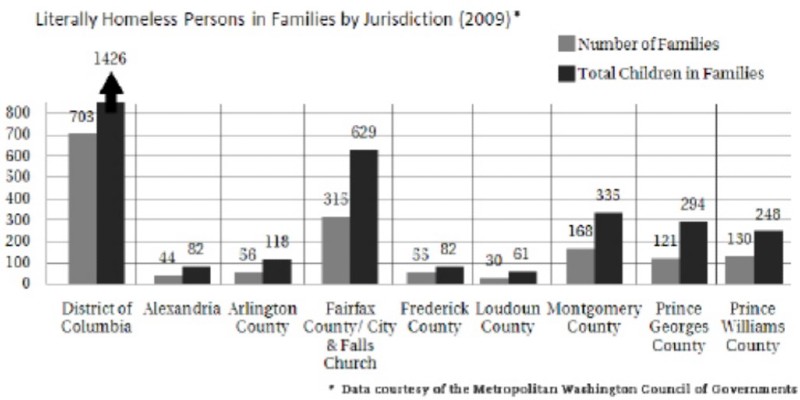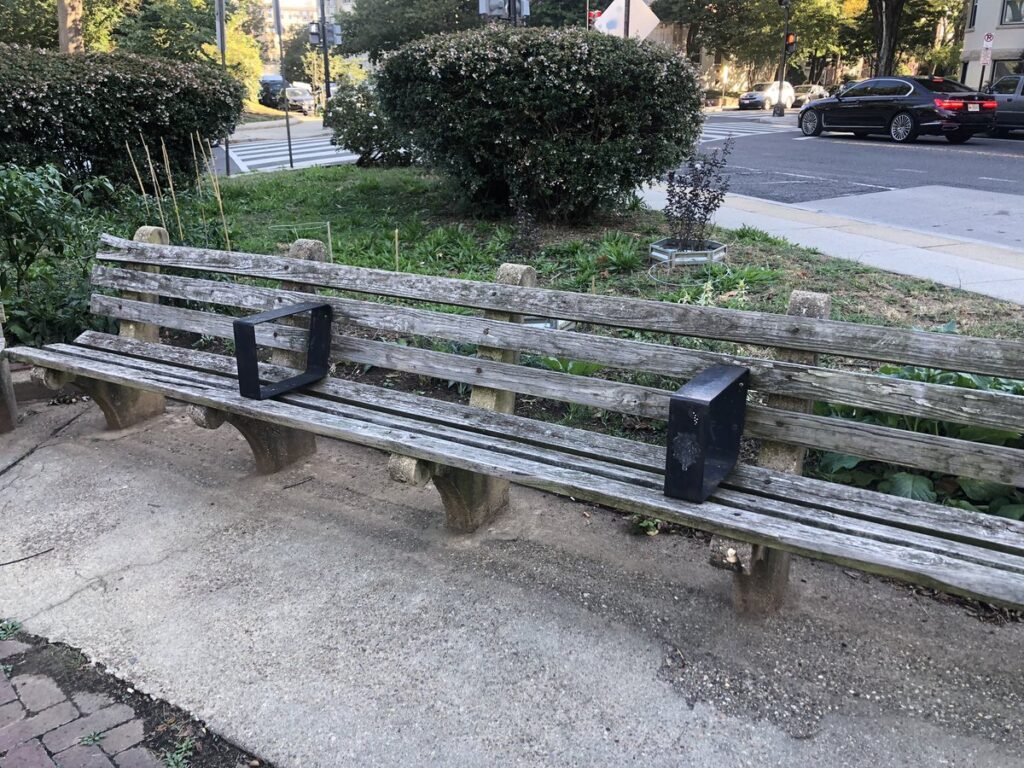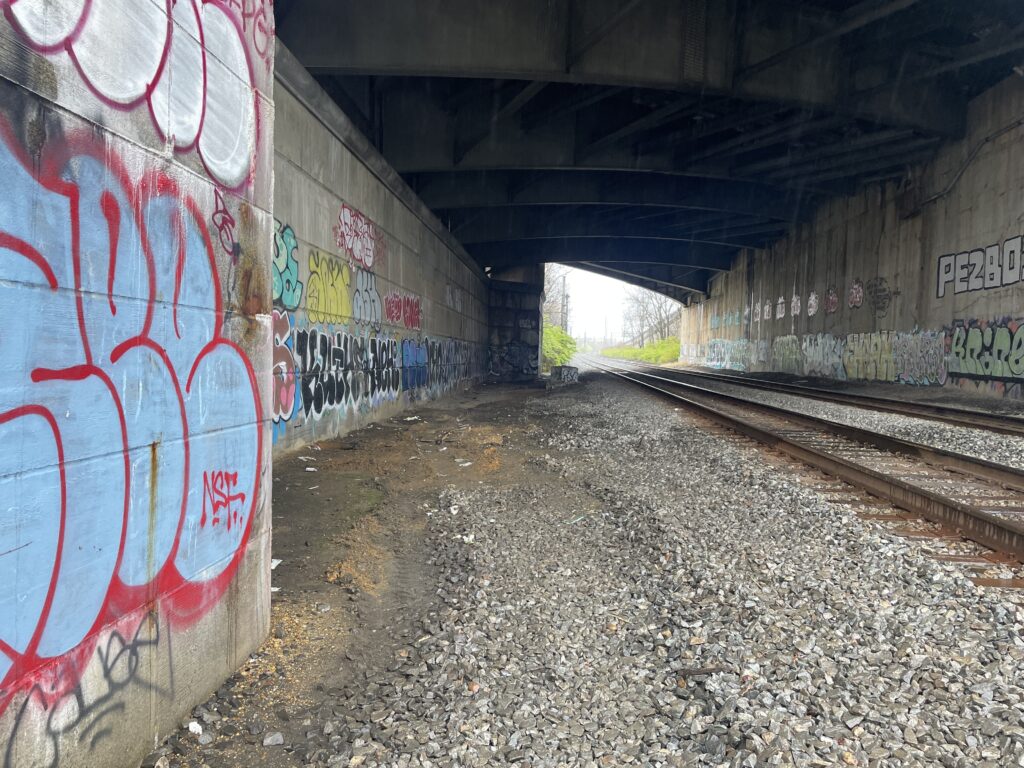The Washington region has seen an increase in homelessness over the past year, particularly among families, according to an annual survey of streets, shelters, soup kitchens and other programs that serve the indigent.
The ninth annual homeless count, compiled for the Metropolitan Washington Council of Governments, found a total of 12,035 literally homeless men, women and children living in shelters, transitional housing and out of doors in the District and its suburbs. That shows an increase of approximately 2% over 2008.
Most striking was the increase in family homelessness, up 15.4% since 2008, according to the data gathered throughout the region by teams of volunteers and program caseworkers on a single bitterly cold day and night in January of this year.
“What really pops out is the percentage of increase in the family side,” said Tom Fredericksen, research associate at the Community Partnership for the Prevention of Homelessness. Fredericksen said he believes the increase was an indicator of hardships associated with the troubled housing market and the recession.
“It’s just a sign of the times,” said Fredericksen, who presented an analysis of the annual count at the June meeting of the area’s Coalition of Homeless and Housing Organizations, or COHHO.
The enumeration identified a total of 5,293 homeless people living in families in the District and in suburban areas of Virginia and Maryland this year – up from 4,566 in 2008. This year’s total included 3,275 children identified as literally homeless, 396 more than last year.
And among adults in the families, more than 40% across the region were working, with the percentage even higher in some suburban jurisdictions. In Prince William County, Va., for example, 67% of adults in homeless families were homeless despite being employed.
The annual survey is conducted in compliance with rules laid down by the U.S. Department of Housing and Urban Development (HUD), which funds programs for the homeless nationwide. In accordance with HUD’s definition of homelessness, the count does not include people who are “doubled up” in housing with relatives or others, although many of those individuals are considered by advocates to be living at great risk and in great need.
In one hopeful sign, the count found fewer single homeless adults in the region this year – a total of 6,742, representing a 6.5% decrease from last year’s count.
That reduction coincides with Housing First efforts in the District and in suburban communities. Those programs are designed to move the most vulnerable, chronically homeless people off the streets and out of emergency shelters.
They are placed in permanent supportive housing programs that offer apartments, medical and emotional counseling and other assistance, according to Michael Ferrell, chairman of the Council of Government’s Homeless Services Committee and executive director of the Washington, D.C. Coalition for the Homeless.
The supportive housing programs which are being implemented in cities nationwide ease suffering and also save money, advocates say, because they stop the cycle of homeless people moving in and out of shelters, hospitals and jails. A total of 5,204 adults now live in permanent supportive housing throughout the region, according to the report, a 13.2% increase over the past four years.
“More jurisdictions are adopting the idea of using permanent supportive housing as a way of addressing the problem,” said Ferrell. “That’s good news. People are not standing still wringing their hands. They are doing something to move people toward permanent supportive housing and self-sufficiency.’”
The 2009 report provides only a glimpse of the region’s homeless population, captured on a single day. But over the past nine years the effort has provided useful insights into trends in homelessness and how well existing programs meet people’s needs, said Skip Watkins, who works at the CCNV shelter in the District and serves as co-convener of COHHO.
“With these numbers, we can look at what government is doing and what you advocates are doing and if you are doing a good job,” Watkins told the COHHO meeting.








